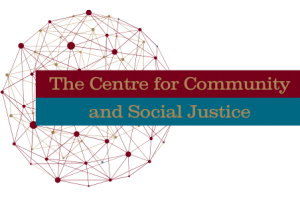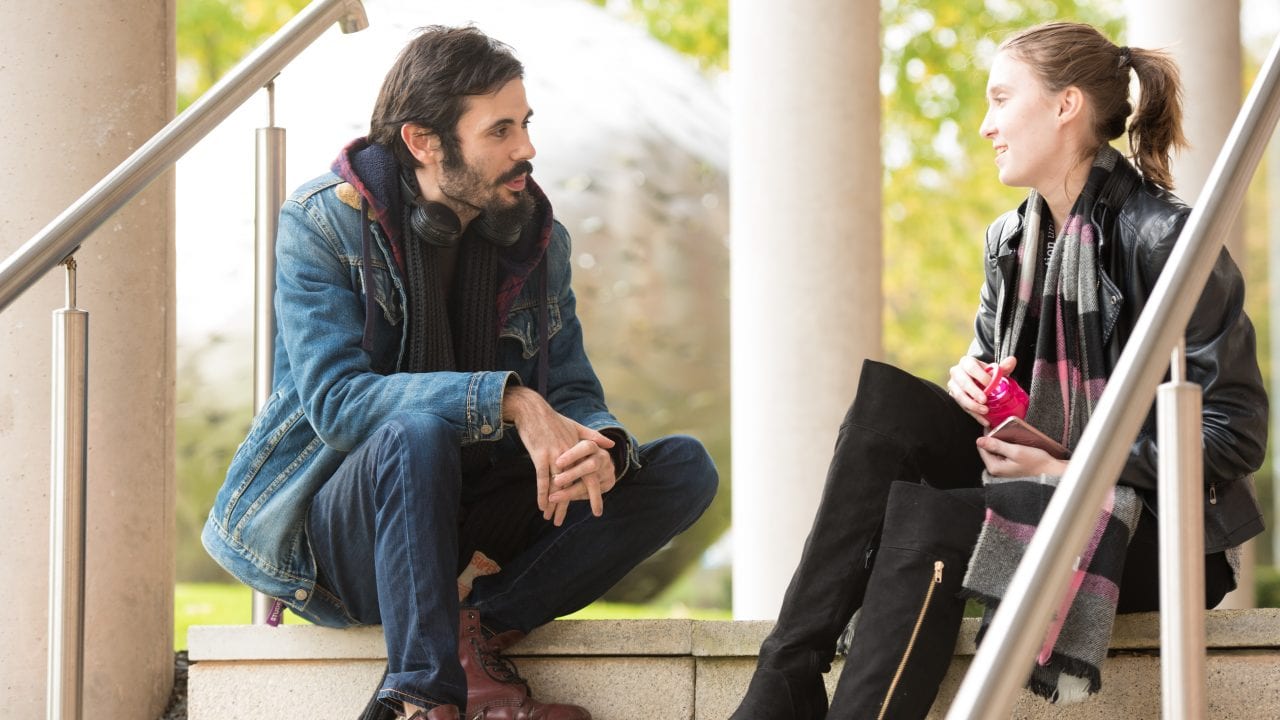The Centre for Community and Social Justice
Purpose
The core purpose of this interdisciplinary Centre for Community and Social Justice is to bring together diverse communities to think critically about relations of power and social injustices to create a more inclusive, equal and democratic society. The Centre encourages external communities and organisations to join academic staff and students to research collaboratively and to disseminate knowledge for the wider social good.
Centre for Community and Social Justice 2024
The Centre for Community and Social Justice is again hosting a seminar series, a conference and other activities this semester, following a successful programme of seminars and conferences last year. This semester, seminars will run on selected Wednesday lunchtimes/afternoons. These are free lunchtime events, open to all staff, students and members of the community. Please feel free to bring your own refreshments. For more details, or to propose an abstract for a future seminar, please contact Claire Monk c.monk@newman.ac.uk
Current scheduled activities are:
- 16th October, 1:15 pm onwards, Adding ADHD to the EdD: An autoethnography of finding ways to flourish during doctoral candidacy as a female academic with late-diagnosis ADHD, Vanessa Clarke, Aston University – room Hi103
- 6th November, 1:15-2:15pm, Housing design principles and Social Justice, Dr. Sana Malik (BCU) – room Hi103
- 20th November, 1:15-2:15pm, Embedding the Anti-Racism Framework for Initial Teacher Education at Birmingham Newman University – The Journey So Far, Sohail Khan – room tbc
- 27th November, 2pm-4pm, Tom Snape Citizens – room tbc
- 11th December, 1:15pm onwards, An interactive session on research funding and writing applications, Adam Benkwitz – room tbc
Articles and Publications
Entrust Care Partnership report
Child Abuse Review – 2023 – A review of safeguarding in grassroots football
In this article, Pete Harris considers the need for a psycho-social approach in the forms of youth work that employ ex-offenders as role models with young people involved in violence. Harris recognises the potential of this form of youth work practice but emphasises a need for professional training and supervision that draws on reflexive processes for the worker. He argues that psychodynamic approaches are useful in the training and supervision for this form of youth work.
This article argues that psychosocial theory can enhance understanding of intersubjective dynamics between workers and young people involved in crime and violence. After introducing some conceptual tools from psychoanalysis and post-structural theory, a case study follows a worker’s efforts to bring about a young man’s desistance (including the worker’s use of self-disclosure) and how this is stymied by systemic failings in a homeless hostel in the UK. The article concludes that professional work in services targeted at young people with multiple support needs requires a deep sensibility to intersubjective and unconscious dynamics within professional relationships and organisations.
This article explores late modern Black and Muslim young men’s and women’s experiences of higher education. Carrying out qualitative research with 14 male and female young people, these students claimed that their Youth and Community Work course at their university made available an alternative representational space, enabling them to develop a major transformation of their sense of identity and self. In deploying the term pedagogical self, we are attempting to capture their naming pedagogy as central, in their terms, to the ‘reinvention of their selves’. We conclude by suggesting that our research participants’ narratives are located within an exploration of late modern identity and the self in higher education. In turn, this enables us to reflect on a generational shift in meanings around racialisation and difference in thinking about the future of higher education in Britain.
The main argument in this article is that the rationale for the state’s growing interest in children (in particular those children who are considered a social problem) and the emerging social policy solutions, i.e., foster care, are driven by particular political and economic agendas which have historically paid little attention to the needs of these children and young people. This article explores the relationship between the state, the child and their family and the drivers for this transformation in children’s public care making use of a genealogical approach to identify the key social, political and historical factors, which have provided the context for this change. It examines the increasing interest of the state in the lives of children and families and the associated motivation for the emerging objectification of children.
This book draws on the findings of a two-year European research project to offer answers to the ‘problem’ of how to respond to violence involving young people that continues to challenge youth workers and policy makers.
‘Responding to violence through youth work’ combines elements of critical theory, psychosocial criminology and applied existential philosophy to present a new model for responding meaningfully and effectively to these issues, demonstrated through a series of case studies and insider accounts generated through peer research.
This fully revised and expanded edition considers the meaning of ‘vulnerability’ – a key concept in early intervention – and the relationship between vulnerability and the individual, communities and society. It includes new chapters on children’s voices, young people and vulnerability, and working with vulnerable parents.
Introducing students to a broad debate around what constitutes vulnerability and related concepts such as risk and resilience, it examines how vulnerability has been conceptualised by policy makers with a clear focus on early intervention for preventing social problems later in life. It adopts a case study approach, using chapters examining the concept of vulnerability from sociological, psychological and social policy perspectives before looking at examples around leaving care, victims of violence, sexual abuse, and the Internet.
Supporting students in engaging with and evaluating the conceptualisation and application of vulnerability in professional practice, this book is suitable for anyone either preparing for or currently working within the children’s workforce, from social work and health care to education and youth work.





